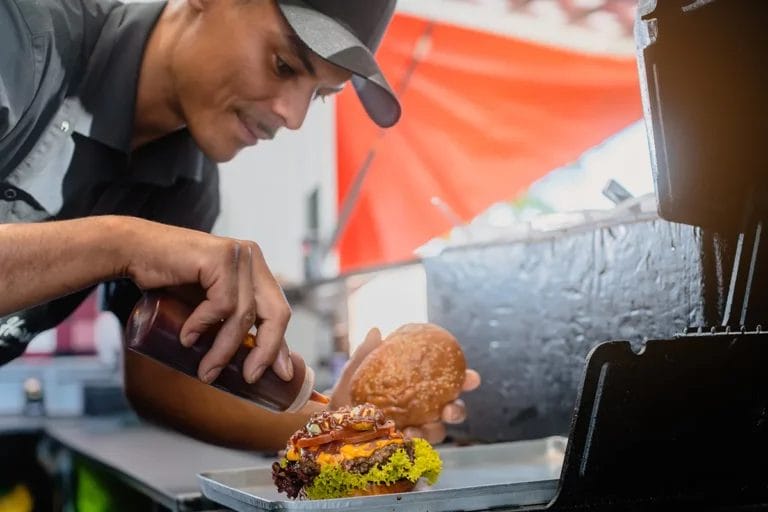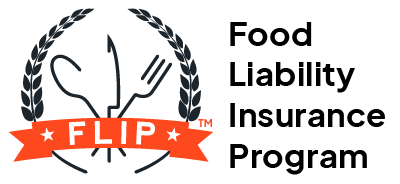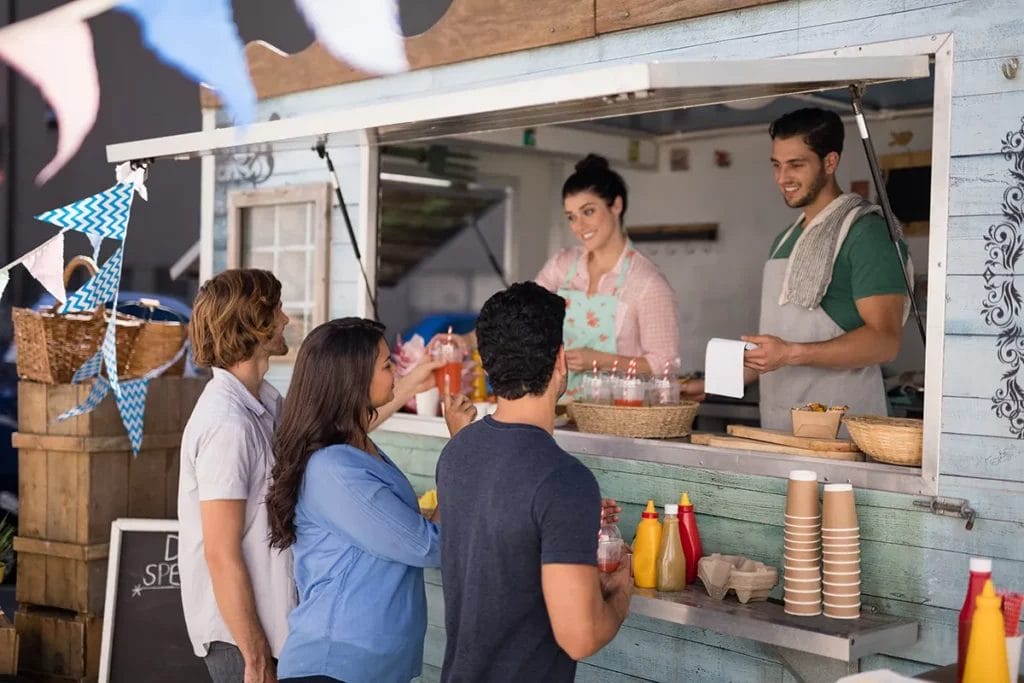The Rocky Mountain State is a culinary hub for food trucks, with festivals across the state and a rapidly growing mobile food industry.
For the ultimate guide on how to start a food truck in Colorado, look no further. We’ve got you covered, from the licenses and permits you need to why getting food truck insurance is a critical part of running your new business.
Find out which city in Colorado made our list of the best cities for starting a food truck! Check out the full report today.
Understand Food Truck Requirements in Colorado
Before you start applying for licenses and permits, there are a few essential things you need to sort out beforehand:
- Business classification: The classification you choose affects the structure of your business and how it’s taxed. Many food trucks are sole proprietorships, but you may choose to structure yours as a limited liability company (LLC) or partnership.
- Business name: Your business name should be short and simple enough that it’s easy for customers to remember and know what you sell, but unique enough to stand out among the crowd.
- Business plan: Think of your business plan as your roadmap to success, laying out your strategy and goals to help you stay on track. Most banks and lenders will also ask to see your business plan before issuing a loan.
- Certificate of Insurance (COI): This document functions as your proof of liability insurance coverage, which you can provide to food truck festival organizers and include in your business plan. It includes details about your coverage and limits.
- Employer identification number (EIN): Register your business with the Internal Revenue Service (IRS) to receive this number, which is used for business tax purposes.
- Mobile food unit plan review: The Colorado Department of Public Health and Environment (CDPHE) requires you to submit a mobile food unit plan before it will license your food truck. The CDPHE only conducts plan reviews in select counties, so if your county isn’t under their jurisdiction, you need to contact your local health department.
Pro Tip: Setting up a separate bank account for your food truck is critical, especially if you’ve registered your business as an LLC or Corporation. Keeping your personal and business finances separate helps protect your personal assets if your business is sued. This means your food truck liability insurance policy could cover the costs instead of forcing you to handle them out of pocket.
Obtain Colorado Food Truck Licenses
In Colorado, you need several types of permits and licenses to legally operate a food truck.
While many of these licenses are issued at the state level, remember that you may need additional permits from your city or county government as well. Always check with your local government to ensure you have everything you need to run your business above board.
Retail Food License
- Issued following the submission of your mobile food unit plan review (also considered your health department license)
- Cost: $155, if issued via the CDPHE
- Where to get it: Colorado Department of Public Health and Environment or your local public health agency
Seller’s Permit
- Allows you to collect and remit federal sales tax on your goods
- Cost: $0
- Where to get it: Small Business Administration (SBA)
State Tax License
- Allows you to collect and remit state sales tax on your goods
- Cost: $66 (includes licensing fee and deposit)
- Where to get it: Colorado Department of Revenue
Fire Safety Permit
- Issued following a successful inspection from your local fire department
- Cost: Varies depending on your jurisdiction
- Where to get it: Your local fire department
Employee Health Permit
- Anyone preparing or serving food in Colorado must obtain this permit within 30 days of employment (also known as a food handler’s license)
- Cost: $10 per employee
- Where to get it: Learn2Serve

Follow Food Truck Regulations in Colorado
Adhering to Colorado’s food truck laws ensures you run your business safely and legally and avoid unnecessary penalties, like fines or shutdowns.
Like the licenses and permits you need, exact regulations can vary from city to city, so always check with your local government to make sure you’re following the rules.
Some of the biggest regulations every food truck owner should be aware of are:
- Commissary agreement: Most cities and counties in Colorado have a commissary or commercial kitchen requirement. This means all food trucks need a contract with a licensed facility for food prep, storing supplies, waste disposal, and cleaning equipment.
- Reciprocity law: As of January 1, 2026, Colorado’s House Bill 25-1295 establishes reciprocity for Denver’s retail food health license and the one issued by the CDPHE. This means the state license will be recognized in Denver, and Denver’s license will be recognized across the state.
- Employee health permit requirement: Every employee working in your food truck who handles, prepares, or serves food (including you) must obtain a food handler’s license. You may be exempt if you or a shift manager has a more advanced permit, like a food manager certificate.
Pro Tip: Your truck will need to pass a thorough inspection before you can get your retail food license, so set yourself up for success with our handy health inspection checklist!
Get Colorado Food Truck Insurance
Have you thought about insurance for your food truck yet?
Yes, you’ll need commercial auto insurance, but you’ll also need food truck liability coverage to fully protect your business.
Running a food truck comes with a lot of risks. A customer could have a serious reaction to an unlabeled allergen in the food you served them and sue you to cover their medical bills. You might get sued for false advertising because you didn’t realize your salad bowls weren’t entirely free of GMOs.
These incidents can cost you. In fact, we found that the average food truck claim costs $6,271. That’s no small potatoes, but with Colorado food business coverage from Food Liability Insurance Program (FLIP), you can get coverage for some (or all) of those expenses.
Learn the Cost of Starting a Food Truck in Colorado
Licenses and permits can add up, with the U.S. Chamber of Commerce reporting that food truck owners spend over $28,000 a year on these expenses alone.
However, there are other costs you need to budget for:
- Food truck
- New: $125,000–$200,000
- Used: $19,900–$80,850
- Custom-branded wrap: $2,500–$5,000
- Cooking equipment
- Grill or griddle: $500–$2,500
- Deep fryer: $500–$2,000
- Convection oven: $1,000–$3,500
- Microwave: $250–$800
- Refrigeration
- Refrigerator/freezer combo: $2,000–$5,000
- Prep table with refrigeration: $1,000–$3,000
- Safety and sanitation
- Three-compartment sink: $1,000-$2,500
- Handwashing sink: $200–$500
- Fire suppression system: $1,500–$3,000
- First aid and personal protective equipment (PPE): $100–$300
- Power supply
- Generator: $1,000–$5,000
- Backup power: $500–$2,000
- Technology
- Point of sale (POS) system: $500–$3,000
- Inventory software: $240–$2,400
- Tablet: $300–$1,000
- WiFi or mobile hotspot: $100–$300
Pro Tip: Nervous about breaking even with all of these expenses? Following a proven menu pricing strategy helps protect your bottom line while ensuring you make a profit!
Sell at Colorado Food Truck Festivals
Food truck festivals are some of the best ways to reach new customers and connect with other entrepreneurs in your local mobile food scene.
Keep in mind, the festival organizers will likely want to see your COI before they allow you to participate, so make sure to get insured before you send in any applications!
Some of the biggest food truck festivals to check out around Colorado are:
Pro Tip: Grow your event calendar with our food festival directory!
FAQs About Starting a Food Truck in Colorado
What Food Operations Do Not Need a Permit in Colorado?
Colorado does allow some home-based food businesses to operate without a license, thanks to the Colorado Cottage Foods Act. However, food trucks are always required to obtain permits to operate legally.
Are There Specific Zoning Regulations for Food Trucks in Colorado?
Most zoning regulations are established at the city level, so check with your local jurisdiction to confirm which rules apply to your food truck.
However, many cities have regulations like:
- Parking only in designated areas, such as commercial or industrial zones
- Parking permits for public property, private property, or events
- Rules against parking too close to schools, residential areas, or brick-and-mortar retail
What Are the Fire Safety Requirements for Food Trucks in Colorado?
Some of the Colorado fire safety requirements you should be aware of include:
- Fire suppression system installed in your food truck if you have fryers, grills, or cook over an open flame
- A Class K extinguisher for grease and oil fires and a Class ABC dry chemical extinguisher for electrical fires
- Propane tanks must comply with NFPA 58 standards (being properly mounted and secured, valves capped when not being used, etc.)
- Hood ventilation systems to capture grease-laden vapors

Alex Hastings
Seattle-based copywriter and (WA) licensed insurance agent Alex Hastings leverages her experience as a lover of fast-casual food, baked goods, and iced oat milk lattes. She holds a B.A. in Creative Writing from Western Washington University. Before working at Veracity, she was a retail copywriter at Zulily and an English language teacher in South Korea. Alex is fully trained on FLIP insurance coverages and writes content that connects food and beverage business owners with the policies they need.
Seattle-based copywriter and (WA) licensed insurance agent Alex Hastings leverages her experience as a lover of fast-casual food, baked goods, and iced oat milk lattes. She holds a B.A. in Creative Writing from Western Washington University. Before working at Veracity, she was a retail copywriter at Zulily and an English language teacher in South Korea. Alex is fully trained on FLIP insurance coverages and writes content that connects food and beverage business owners with the policies they need.

Kyle Jude
Kyle Jude is the Program Manager for Food Liability Insurance Program (FLIP). As a dedicated program manager with 10+ years of experience in the insurance industry, Kyle offers insight into different coverages for food and beverage business professionals who are looking to navigate business liability insurance.
Kyle Jude is the Program Manager for Food Liability Insurance Program (FLIP). As a dedicated program manager with 10+ years of experience in the insurance industry, Kyle offers insight into different coverages for food and beverage business professionals who are looking to navigate business liability insurance.

